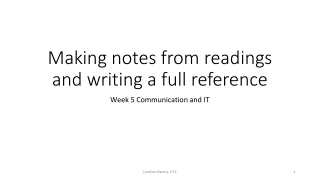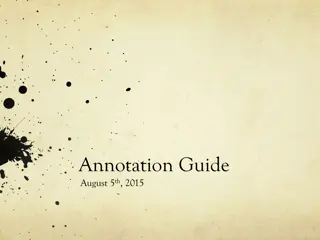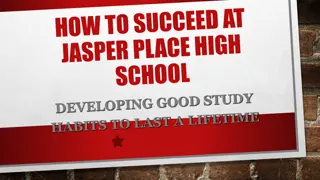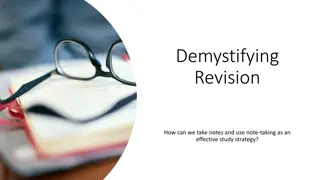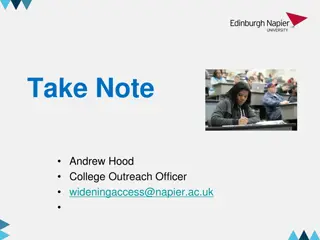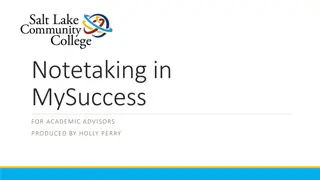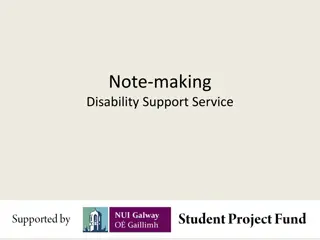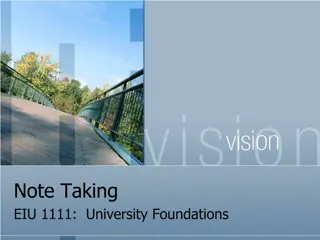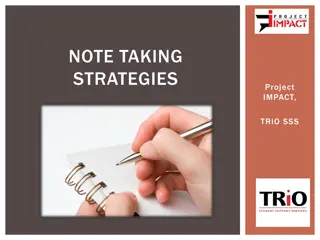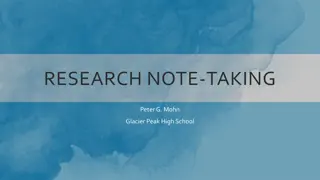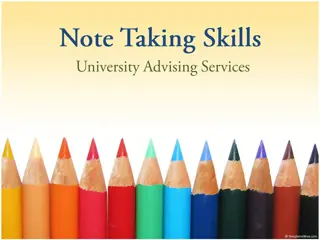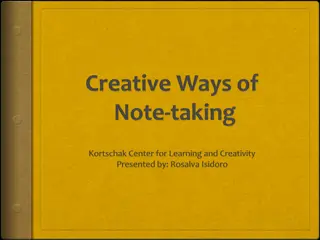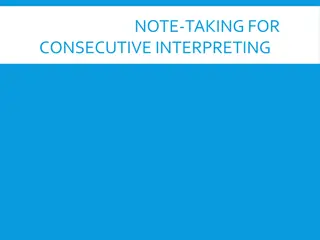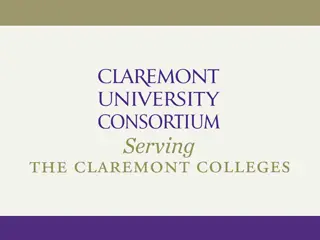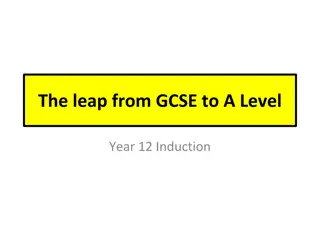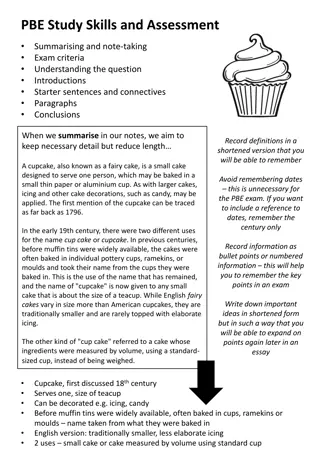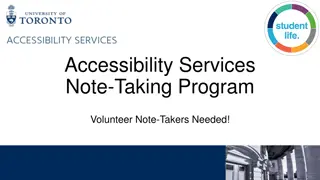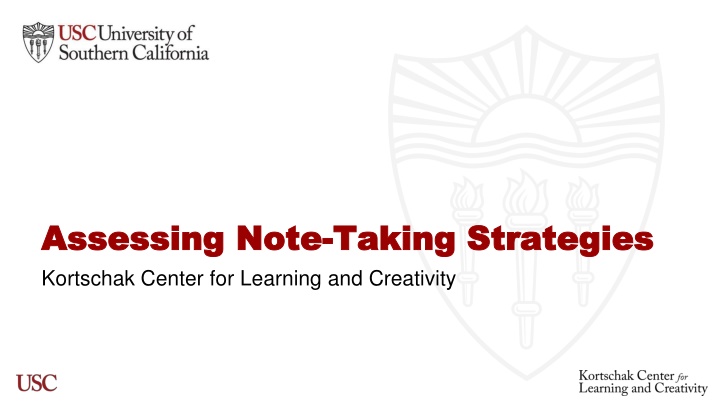
Effective Note-Taking Strategies for College Success
Enhance your college success with effective note-taking strategies. This guide covers assessing your current methods, recording main ideas, and avoiding common pitfalls. Discover key tips such as completing assigned readings, sitting close to the lecturer, avoiding doodling, and condensing main ideas. Improve your note-taking skills today!
Download Presentation

Please find below an Image/Link to download the presentation.
The content on the website is provided AS IS for your information and personal use only. It may not be sold, licensed, or shared on other websites without obtaining consent from the author. If you encounter any issues during the download, it is possible that the publisher has removed the file from their server.
You are allowed to download the files provided on this website for personal or commercial use, subject to the condition that they are used lawfully. All files are the property of their respective owners.
The content on the website is provided AS IS for your information and personal use only. It may not be sold, licensed, or shared on other websites without obtaining consent from the author.
E N D
Presentation Transcript
Assessing Note Assessing Note- -Taking Strategies Taking Strategies Kortschak Center for Learning and Creativity
Effective Note Effective Note- -Taking Taking Key to your success in college Recording Main ideas & supporting details (Seli & Dembo, 2020)
Self Self- -Observation Observation Evaluate your current note- taking strategies (Seli & Dembo, 2020)
Do you complete the assigned Do you complete the assigned readings readings before before each lecture? each lecture? This is something you should be doing (Omrod 2015, as cited in Seli & Dembo, 2020)
Do you try and sit as close as Do you try and sit as close as possible to the lecturer? possible to the lecturer? This is something that may be helpful (Seli & Dembo, 2020)
Do you doodle during a lecture? Do you doodle during a lecture? This is something you should avoid doing (Titsworth & Kiewra 2004, as cited in Seli & Dembo, 2020)
Do you avoid listening when Do you avoid listening when difficult information is presented? difficult information is presented? This is something you should avoid doing (Seli & Dembo, 2020)
Do you condense main ideas rather Do you condense main ideas rather than write complete sentences? than write complete sentences? This is something you should be doing (Mueller & Oppenheimer, 2014)
Do you use abbreviations? Do you use abbreviations? This is something you should be doing (Seli & Dembo, 2020)
Do you daydream during lectures? Do you daydream during lectures? This is something you should be avoiding (Seli & Dembo, 2020)
Do you separate main ideas from Do you separate main ideas from examples and other secondary examples and other secondary information? information? This is something you should be doing (Omrod 2015, as cited in Seli & Dembo, 2020)
Do you make a notation in your notes Do you make a notation in your notes for information you don t understand? for information you don t understand? This is something you should be doing (Heiman & Slomianko, 1993, McWhorter, 2010, as cited in Seli & Dembo, 2020)
Do you attempt to control Do you attempt to control distractions around you? distractions around you? This is something you should be doing (Mueller and Oppenheimer, 2014)
Do you try to determine the Do you try to determine the organization of the lecture? organization of the lecture? This is something you should be doing (Seli & Dembo, 2020)
Do you review your notes each Do you review your notes each day after class? day after class? This is something you should be doing after each class (Seli & Dembo, 2020)
Do you understand your notes when Do you understand your notes when you begin preparing for an exam? you begin preparing for an exam? This is something you should be doing (Heiman and Slomianko, 1993, as cited in Seli & Dembo, 2020)
Do you take effective notes from Do you take effective notes from PowerPoint based lectures? PowerPoint based lectures? This is something you should be doing each lecture (Seli & Dembo, 2020)
Self Self- -Observation Observation Review Review Take a moment to evaluate your current note-taking strategies
References References Seli, H. & Dembo, M.H. (2020). Motivation and learning strategies for college success: a focus on self-regulated learning. New York: Routledge. Mueller, P. A., & Oppenheimer, D. M. (2014). The pen is mightier than the keyboard: Advantages of longhand over laptop note taking. Psychological science, 25(6), 1159-1168. https://doi.org/10.1177/0956797614524581

